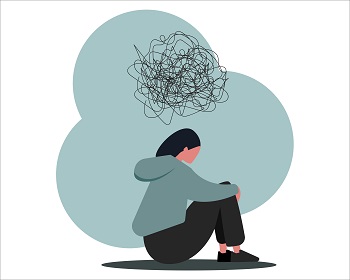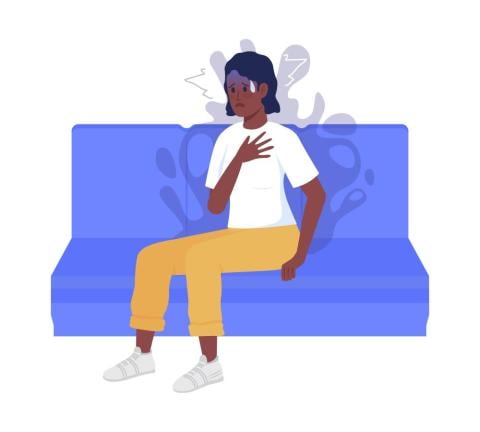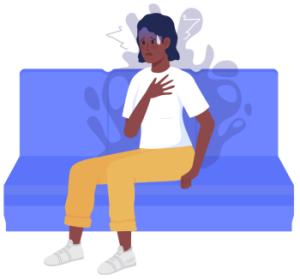What is Depression? How Can We Overcome It?
What is Depression? How Can We Overcome It?

With depression, there’s limited pleasure or interest in day-to-day activities and/or a consistently depressed mood. Because of this, individuals experiencing depression often pull back from life by not engaging in activities they used to before becoming depressed. This makes sense because why would someone want to get involved in an activity they aren’t going to enjoy?
Another common symptom of depression is fatigue. One of my clients described their depression was like constantly wearing a backpack full of bricks. Just like with obtaining limited pleasure, feeling fatigued often leads depressed clients to become less active because they don’t feel like they have the energy to do much.
This presents a problem because the less active people with depression are, the more depressed they tend to get. Why does this happen? One reason is that they deprive themselves of the potential for positive experiences. For instance, a client of mine I’ll call Jay became depressed after he lost his job, and then he stopped riding his bike and socializing with friends because he no longer felt like doing either. Instead, he spent most of his free time aimlessly scrolling through the internet and binge-watching tv series.
Another reason depression tends to increase when activity decreases is that it allows more opportunity for rumination. Rumination is thinking repetitively about problems, symptoms of distress, and the meaning of the distress. Jay’s rumination sounded like, “why is my life such a mess? What did I do wrong at work? I’m never going to feel better.” We tend to ruminate when there’s a gap between how our lives are and how we want them to be because we believe that rumination can help us figure out why there’s the gap and how to close it. The problem is that thinking about these topics doesn’t usually lead to any solutions and ends up making people feel more depressed.
So what can we do about this? We have the opportunity for positive experiences and can try to close that rumination gap through a strategy called behavioral activation, which means becoming more active and engaged in life. First, you need to take a look at your day-to-day life. What kind of things are you doing from the moment you wake up until you go to sleep? Next, think about what’s important or meaningful to you. I like to think of meaningful activities in 3 categories: Labor, love, and leisure. Labor includes your work, learning, and volunteering. Love involves intimate relationships, family, friendships, and can include religion or spirituality. Leisure includes recreation, entertainment, and fitness. Now, compare what’s important to you to how you’re currently living. Where are the gaps? Jay realized his gaps of not riding his bike, connecting with friends, or putting effort into learning.
Now that we know where the gaps are, we need to close them by scheduling those activities into our lives. It’s usually easier to follow through with activities when we schedule them for a specific time. Jay decided to ride his bike to and from work during the week. He also was able to start a weekly poker night with friends on Fridays, and decided to read every night for 30 minutes before going to bed.
An obstacle to action that may show up with depressed individuals is lack of energy or motivation. A question I commonly ask is, “do you feel like you have the motivation or energy to go to work/school (or other required activity) every day? And those days you don’t feel like it, do you always stay home?” Almost everyone has the experience of not feeling like they have the energy or motivation to do something that’s required, but they end up doing it anyways. This proves that you don’t need to feel like you have the energy or motivation to do something in order to do it.
The other main obstacle occurs during the activities. Depressed individuals may not experience the same degree of enjoyment as they used to, which can cause them to become discouraged and withdraw. I like to remind my clients that we can’t control our emotions at will. If we could, I’d be out of a job. What we can control is where we focus, the meaning we give to experiences, and our behavior. This means we can choose to engage in activities we value, remind ourselves why they’re important to us, put our focus on the experience instead of rumination in our head, and allow whatever emotion that shows up. Research has demonstrated that using this behavioral activation approach can effectively treat depression.

















